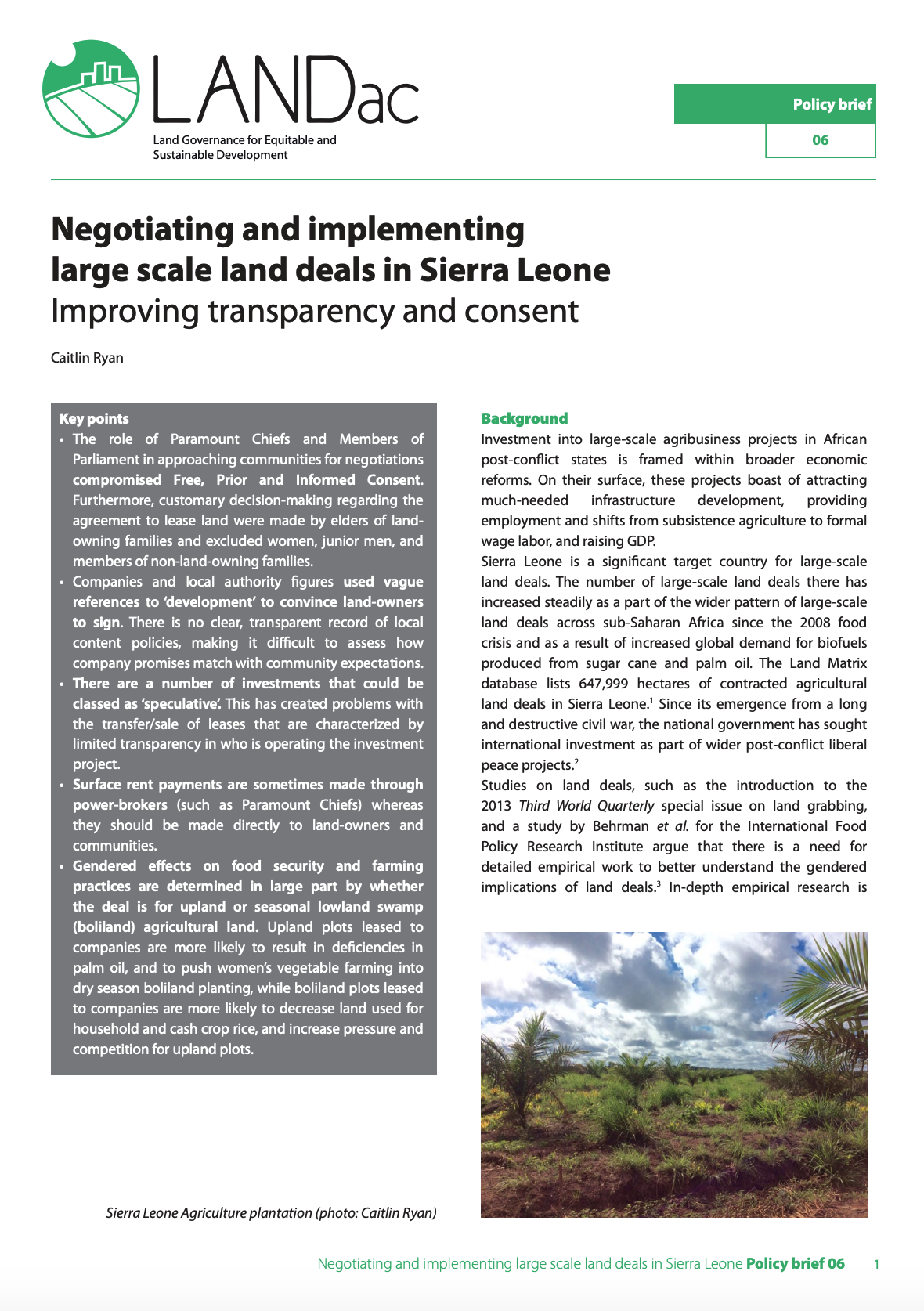Resource information
Investment into large-scale agribusiness projects in African post-conflict states is framed within broader economic reforms. On their surface, these projects boast of attracting much-needed infrastructure development, providing employment and shifts from subsistence agriculture to formal wage labor, and raising GDP.
Sierra Leone is a significant target country for large-scale land deals. The number of large-scale land deals there has increased steadily as a part of the wider pattern of large-scale land deals across sub-Saharan Africa since the 2008 food crisis and as a result of increased global demand for biofuels produced from sugar cane and palm oil. The Land Matrix database lists 647,999 hectares of contracted agricultural land deals in Sierra Leone. Since its emergence from a long and destructive civil war, the national government has sought international investment as part of wider post-conflict liberal peace projects.
Studies on land deals, such as the introduction to the 2013 Third World Quarterly special issue on land grabbing, and a study by Behrman et al. for the International Food Policy Research Institute argue that there is a need for detailed empirical work to better understand the gendered implications of land deals. In-depth empirical research is crucial for understanding the nuances and intricacies of how deals are negotiated and implemented, and how these processes are experienced differently by different members of the community. Gender is one, but not the only important mediating factor. Even amongst women in the same community, different women will have different experiences with land as a result of variables such as whether or not they are part of a land-owning family. Ethnographic data can help determine which factors mediate ones’ experiences of the negotiations for and implementation of land deals.


